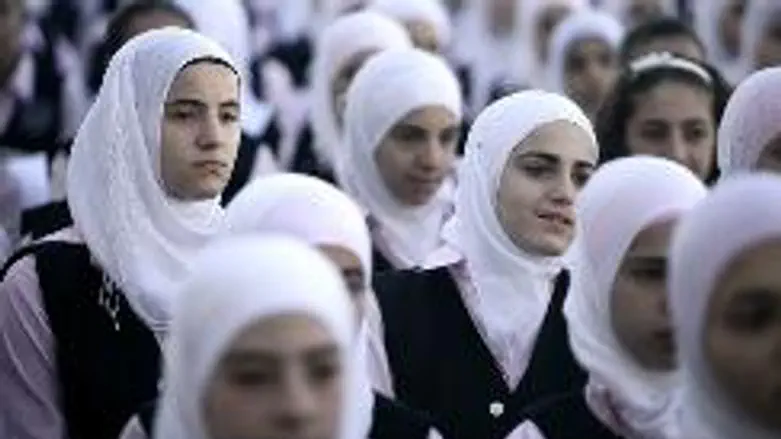
A new British television series called “Syrian School” now being screened in Britian is providing viewers with a pro-Syrian look into the lives of high school students living in Damascus. The program, comprised of five one-hour episodes, is being broadcast on Britain's TV digital channel BBC 4. It offers an invitation to British schools to twin with schools in the Arab world via an application form provided on the British Broadcasting Corporation (BBC) website.
Syrian School tracks male and female students and staff in four schools over the course of a year and at first glance appears to be a typical documentary. But that analogy ends shortly after the program gets underway.
At least one scene includes a nod to the “party line” – the first episode introduces the viewer to Asma al-Assad, the wife of Syrian President Bashar al-Assad. The first lady is shown visiting a school to talk to the girls about the new project she is supporting, one that prepares youths to become entrepreneurs and to work in the private sector.
The teenagers come across as lively, good-humored, ambitious and independent-minded, and one segment is with "Palestinians" and their responses to Israel's war against Hamas terror.
The series itself tries to show that Syrian students are Western-oriented and casts a subtle but clear slant against Sharia education, although gender separation is strongly encouraged. Amal Hassan, the headmistress of the Zaki Al-Arsuzi Girls' School, for instance, announces that she wants her students to see “how strong I am, and how I am proud of myself, and how I am free from inside... to face all the problems of life they have to be like this.”
However, the same episode features a teenage girl who has transferred out of a religious Islamic school to attend Hassan's school for her final year. The student, Du'aa, memorized the Koran at age 14, viewers are told, but she makes it clear that Islamic religious observance does not preclude a good education. “We prize knowledge a lot,” she says. Du'aa wanted to be an astronaut as a small child.
Reflected throughout the programs are the typical themes of adolescence, the yearning to “be heard,” the need to be able to express one's inner reality, and yet remain within the safety net provided by family and society.
Not so typical are some of the more poignant issues faced by staff and extended family members who encourage students to advance their skills in extra-curricular activities despite risking the wrath of their parents.
One example is an 18-year-old discus champion who is encouraged by the school sports mistress to train for the national schools championships. She keeps her training secret from her father, who would firmly oppose the activity – but her father's mother, on the other hand, quietly accompanies her to the training sessions.
Directed and filmed by anthropologist Max Baring, the series was produced by Lion Television and is a joint project of the Open University and the BBC. It is slated to run during the BBC World News program slot in August.